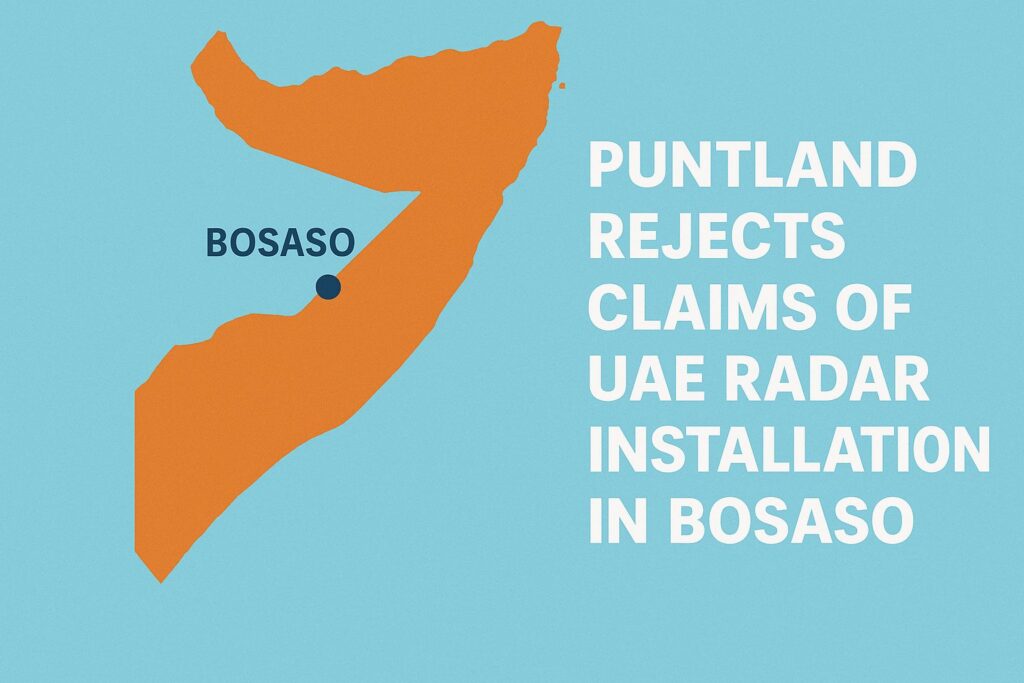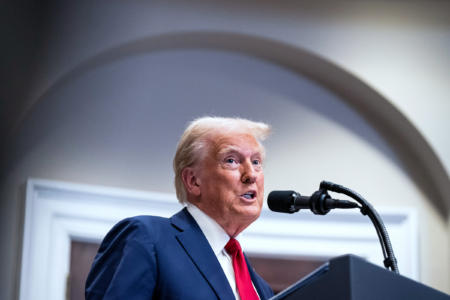In a bold statement addressing growing speculation, the government of Puntland State of Somalia has firmly denied recent reports alleging the UAE radar installations in Bosaso, a key port city on the Red Sea, to support military operations in Sudan and Yemen.
This denial comes at a critical time, as regional conflicts and foreign policy maneuvers in the Horn of Africa and the Arabian Peninsula continue to spark international debate and misinformation.
Social Media Allegations: UAE radar installation in Bosaso
Unverified claims circulating on social media and some media outlets suggested that the UAE had deployed military-grade radar systems in Bosaso, potentially as part of a broader strategy to conduct or support airstrikes in conflict zones such as Yemen and Sudan.
The reports quickly gained attention due to the UAE’s expanding military and economic footprint across the Red Sea corridor.
However, Puntland officials swiftly responded to the speculation, stating that no foreign military infrastructure, including radar installations, has been established in Bosaso or anywhere else within Puntland’s jurisdiction without full transparency and national approval.
Puntland’s Position on UAE Cooperation
While Puntland has acknowledged a long-standing partnership with the UAE.
Particularly in areas such as security training, infrastructure development, and port management.
Officials emphasized that these relations remain focused on developmental and humanitarian objectives, not military interventions in third-party nations.
“All cooperation with international partners, including the UAE, aligns with the federal framework of Somalia and respects both national sovereignty and international law,” a Puntland spokesperson stated.
Why the Allegations on UAE Radar Installation in Bosaso Matter?
The Horn of Africa sits at the heart of critical geopolitical dynamics.
Somalia’s strategic position—bordering the Gulf of Aden and lying near key Red Sea shipping lanes—makes it a focal point for foreign powers interested in security, trade, and military influence.
The UAE has, in recent years, expanded its presence in Berbera (Somaliland) and Assab (Eritrea), leading to increasing scrutiny of its intentions in Somalia.
Amid ongoing instability in Sudan and the protracted war in Yemen, any suggestion of military involvement originating from Somali territory raises alarms across the region and within international diplomatic circles.
Read Also:
- What is the US Army Doing at Baledogle Military Airfield?
- Somalia’s National Consultative Council: Unity or Illusion?
- What is the Somali President Strategy to Counter Terrorism?
Somalia’s Sovereignty at the Forefront
The Somali Federal Government has also weighed in, reiterating that foreign military agreements must be approved at the national level.
Any unilateral deals made between federal member states and external powers could risk undermining Somalia’s constitutional process and international credibility.
Puntland’s clear and public rejection of the radar installation claims sends a message of political accountability and reaffirms its commitment to transparency, sovereignty, and regional peace.
Responsible Diplomacy in a Volatile Region
The situation highlights the growing importance of clear, responsible diplomacy in the Horn of Africa. Especially as regional powers continue to compete for influence.
Puntland’s rejection of these unverified claims about the UAE radar installation in Bosaso is not just a denial—it’s a declaration of intent to uphold Somali sovereignty and act as a responsible player in an increasingly tense regional landscape.
As Somalia continues its path toward political stability and federal consolidation, such moments underscore the need for coordinated foreign policy, credible institutions, and open communication.
Both with domestic audiences and the international community.








